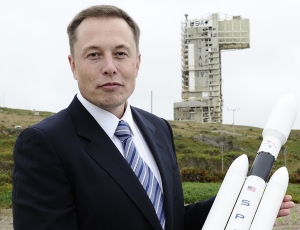 UPDATE: Heat waves and broken records. This report could have been written right now. However, it is was produced by our Bureau of Meteorology exactly one year ago! Take a look at this report produced for The Conversation in Jan 2013. Welcome to the new norm! Any one for cricket?
UPDATE: Heat waves and broken records. This report could have been written right now. However, it is was produced by our Bureau of Meteorology exactly one year ago! Take a look at this report produced for The Conversation in Jan 2013. Welcome to the new norm! Any one for cricket?
Monthly Archives: January 2014
Science with a Smile:) Could Rhubarb Revolutionize Renewable Energy ?
Flow batteries are rechargeable devices based on specific chemicals in liquids separated by a membrane. They hold the key to cheap energy storage, especially if their dependence on expensive metals such as platinum and vanadium is reduced. Enter organic compounds called quinones. Quinones are central to electron transport in photosynthesis (plastoquinone, phylloquinone), and aerobic respiration (ubiquinone). A discovery by Harvard biochemists suggests that quinones similar to those found in rhubarb may unlock the development of cheap flow batteries.
Solar Power Craze on Wall St. Propels Start-Up
 Big changes are beginning to stir in solar energy. Heavy hitters such as Elon Musk (founder of SpaceX, Tesla Motors and PayPal) continue to see opportunities to transform the world through business excellence. And those insights are catching on on Wall Street. SolarCity is not simply a way to sell solar systems, it is a way to sell the energy itself, making “SolarCity almost like a newfangled utility”. Diane Cardwell and Julie Creswelljan wrote more on this innovation and the appeal it is generating in the New York Times last week. Continue reading
Big changes are beginning to stir in solar energy. Heavy hitters such as Elon Musk (founder of SpaceX, Tesla Motors and PayPal) continue to see opportunities to transform the world through business excellence. And those insights are catching on on Wall Street. SolarCity is not simply a way to sell solar systems, it is a way to sell the energy itself, making “SolarCity almost like a newfangled utility”. Diane Cardwell and Julie Creswelljan wrote more on this innovation and the appeal it is generating in the New York Times last week. Continue reading
Want to know more about global change and coastal marine ecosystems?
The University of Queensland has opened a free on-line course (1-2 year University level – http://bit.ly/JEnRkV ) on Tropical Coastal Ecosystems and Global Change as part of the edX partnership with Harvard and MIT.
This exciting course will introduce the major tropical coastal ecosystems (principally coral reefs, mangroves, sea grass meadows) and will explore the problems and solutions that these critical systems face.
The lecturers include Professors Hugh Possingham, Sophie Dove, Catherine Lovelock, Stuart Phinn and myself, with contributions from Drs Dorothea Bender, Ruth Reef, and Chris Roelfsema.
The course starts on April 28. To find out more and register, go to http://bit.ly/JEnRkV


